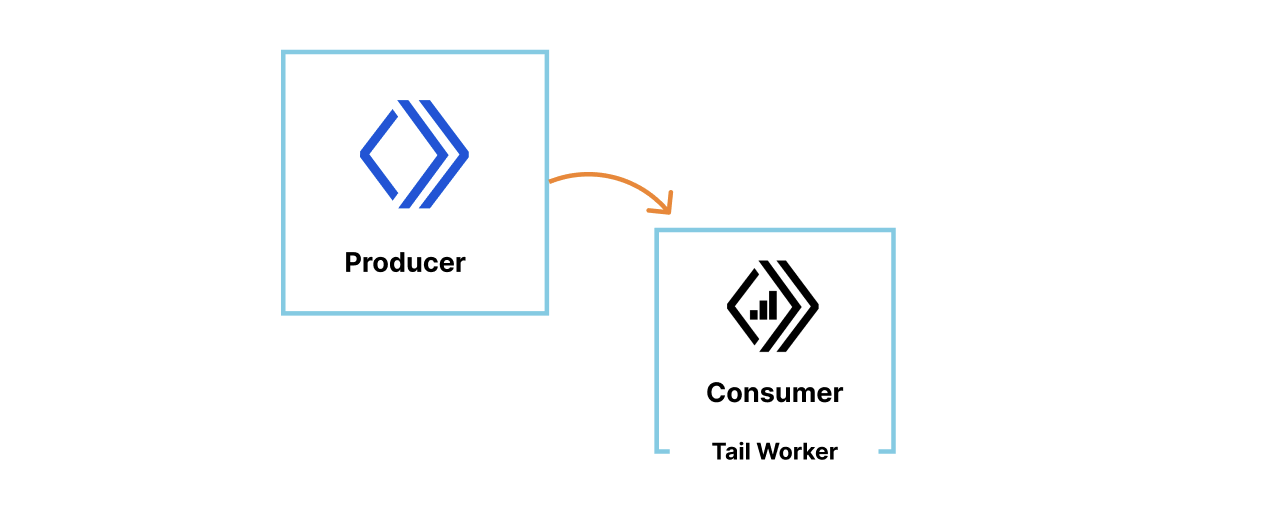Tail Workers
A Tail Worker receives information about the execution of other Workers, such as HTTP statuses, data passed to console.log() or uncaught exceptions. Tail Workers can process logs for alerts, debugging, or analytics.
Tail Workers are available to all customers on the Workers Paid and Enterprise tiers. They are priced the same as Workers.

A Tail Worker is automatically invoked after the invocation of a producer Worker (the Worker the Tail Worker will track) that contains the application logic. It captures events after the producer has finished executing. You can filter, change the format of the data and send events to any HTTP endpoint. For quick debugging, Tail Workers can be used to send logs to KV or any database.
Configure Tail Workers
To configure a Tail Worker:
- Create a Worker to serve as the Tail Worker.
- Tail Workers use a
TailEventhandler to capture events from the producer. The following Worker code is a Tail Worker that sends its data to an HTTP endpoint:
index.jsexport default { async tail(events) { fetch("https://example.com/endpoint", { method: "POST", body: JSON.stringify(events), }) }
}
The following Worker code is an example of what the events object may look like:
index.js[ { "scriptName": "Example script", "outcome": "exception", "eventTimestamp": 1587058642005, "event": { "request": { "url": "https://example.com/some/requested/url", "method": "GET", "headers": { "cf-ray": "57d55f210d7b95f3", "x-custom-header-name": "my-header-value" }, "cf": { "colo": "SJC" } } }, "logs": [ { "message": ["string passed to console.log()"], "level": "log", "timestamp": 1587058642005 } ], "exceptions": [ { "name": "Error", "message": "Threw a sample exception", "timestamp": 1587058642005 } ], "diagnosticsChannelEvents": [ { "channel": "foo", "message": "The diagnostic channel message", "timestamp": 1587058642005 } ] }
]
- Add the following to the
wrangler.tomlfile of the producing Worker: